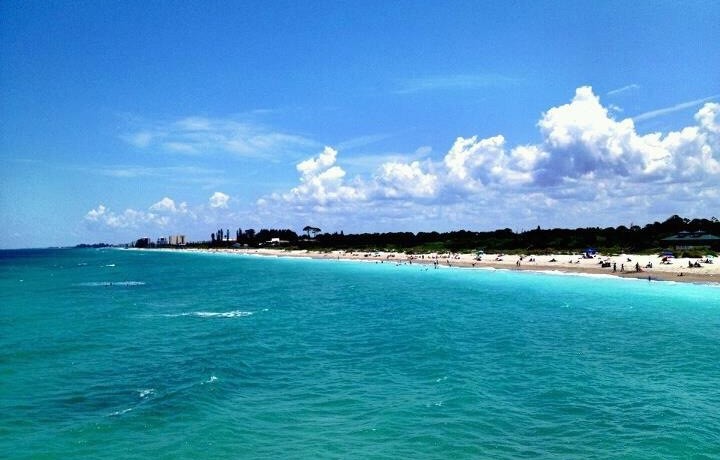Guests expect significant amenities, so make sure you’re prepared to take the plunge into the travel industry.
You own a second home, and you find you don’t use it very often. Or, you bought your retirement home years before you will actually need it. Or, you would love to buy a vacation home but need some help paying for it.
All those scenarios lead homeowners to turn their second homes into vacation rentals. Renting out your vacation home can yield significant financial benefits – but only if you do it right.
“It starts with a commitment to customer service,” says Jon Gray, chief revenue officer for HomeAway.com, which also owns the vacation rental website VRBO.com. “You’re basically having to market your house and get people to want to stay there.”
Renting a vacation home is a business, which means you’ll need the proper business tools in place, from being able to accept credit cards as payment to paying lodging taxes to getting the home cleaned quickly and completely between guests.
“It’s really quite a lot of work, and a lot more work than people anticipate,” says Michael Joseph, co-founder and CEO of InvitedHome.com, which manages vacation properties. “There’s a lot to keep up with. … Guest expectations are becoming higher.”
One of the first decisions when starting the vacation rental process is whether to hire a management company or manage your rental yourself.
While websites such as HomeAway.com, VRBO.com and Airbnb.com provide online marketing tools, access to credit card processing, booking tools and other infrastructure, the individual owner still has to handle guest inquiries, screen renters and arrange for cleaning.
Full-service management companies charge 20 to 50 percent of the rental proceeds to manage the entire process, from bookings through cleaning. You also can hire people to manage parts of the process for less. The online portals usually charge an annual fee for listings. VRBO and HomeAway start at $349 a year and also offer a pay-per-booking option of 8 percent, while Airbnb charges both hosts and guests a small processing fee – 3 percent for hosts and 6 to 12 percent for guests.
The home rental industry has grown significantly in recent years, as online listings and reviews make travelers more comfortable with the model. But travelers who are accustomed to staying at hotels and resorts expect significant amenities and, in some cases, service.
“The competition is more fierce today,” says Cathy Ross, CEO of Exclusive Resorts, a vacation travel club that owns its own properties. “Today’s customer is demanding, and they want certainty that what they see online is what’s there.”
Customers expect modern finishes, nice furniture, hotel-quality beds and linens, plenty of bathrooms, entertainment options such as a TV with cable package, a pool table, board games and big gathering spaces for families, one of the groups that favors vacation home rentals. “Those homes that aren’t well decorated or aren’t well furnished just don’t cut it,” Joseph says.
It’s important to screen tenants, collect a damage deposit and have a strong rental agreement in place, as well as the proper insurance, to protect your home from damage. Rob Stevens, general manager of Avalara MyLodgeTax, which handles resort taxes for vacation rental owners, has been renting out his vacation home in Vail, Colorado, since 1999 and only once has had to deal with significant damage by a tenant. “That concern is way, way overstated,” Stephens says. “These people are generally very respectful of your home.”
Here are 13 things you need to know and do before you rent out your vacation home.
Figure out if the math works. Create a spreadsheet to analyze what it will cost you to rent out your home versus the income you can expect to generate making it a vacation rental. Expenses will include maintenance, utilities, taxes, insurance, repairs and amenities. “Make sure you budget for preventive maintenance, and wear and tear,” Joseph says. “It’s going to pay off to think about it and do a little bit of analysis upfront.”
Decide whether to manage it yourself or HIRE A COMPANY. While managing a rental yourself provides a greater financial return, it also means more work. HomeAway, VRBO, Airbnb and similar sites offer online booking, calendars, email communication and referrals to other tools such as credit card processors and professional photographers. But even with these online portals you still have to hire and oversee the cleaning crew.
Furnish, decorate and equip your home. Amenities typically depend on the market and the price, but people often expect most of what they would get at a hotel. A fast Wi-Fi connection, expansive cable package and other entertainment options are recommended, while a hot tub, pool table, board games and other recreation options can be a draw for some guests. Have toiletries, paper products and basic cleaning products available. Stephens provides guest passes to his community’s athletic club. “It’s really just having a well-appointed, well-stocked unit,” Stephens says. Remember to remove family photos, clothes and personal items so the guests feel more comfortable.
Get professional quality photos and write a great, detailed description. People will choose your home based on the photos and the description of the property . “That first photo is incredibly important because that’s what people see,” Gray says. Be very thorough in your description. List every amenity, down to balconies, cribs and pool noodles.
Find a dependable cleaning crew and other maintenance personnel. If your home is popular, you will have one set of guests checking out in the morning and a second set arriving that afternoon. That makes it imperative that the cleaning crew show up on time. “If you fail at that level, you’re failing massively,” Stephens says. If you don’t live nearby, your cleaning crew is also your eyes and ears. You may also need pool service, a lawn service and a handyman, plus know whom to call if the toilet quits working.
Get proper insurance. A regular homeowners policy rarely covers a vacation rental. Ask your agent what type of policy you need for a home that is used for short-term rentals.
Set up your welcome package and infrastructure. If you don’t plan to meet guests personally, how will they get into the unit? Keyless entry and a hidden key are the two most common methods. Decide which is best for you. Most guests expect to pay with credit cards, though some online portals provide that service or help you sign up for it. Consider creating a welcome packet with the Wi-Fi password, entertainment services, appliance operating instructions and information on community amenities. “You’re now in the travel industry,” Stephens says. “You’re providing a travel experience for somebody. Traveler expectations are becoming increasingly demanding.”
Expect to pay resort or occupancy taxes. Your city, county or state may require you to register your vacation home or get a business license, and most municipalities will collect the same taxes from you that they collect from hotels. You can handle this yourself or hire someone to do it. Avalara MyLodgeTax charges by the report, with most homes paying between $60 and $200 a year for the service. “We live in this regulatory tax-compliant world,” Stephens says. “We all need to be playing by the rules.”
Comply with legal requirements. Make sure you can legally rent your home to travelers. Most homeowner associations don’t allow short-term rentals, though some resorts may handle them for you. Some cities and counties ban short-term rentals. Know the local laws before starting the rental process.
Make rules and create a strong rental agreement. Management companies and online portals have agreements you can modify, and you can also find examples of such agreements online. Decide what number of people you’ll allow per stay and whether to allow pets or smoking.
Be ready to respond quickly. Most online shoppers will send inquiries to several homes at a time. The first suitable home to respond is likely to get their business. “That’s critical,” Stephens says. “Responding a day late is probably unacceptable. You’re going to lose business.”
Create a tenant screening process. Joseph advises talking to all prospective tenants by phone. Ask the number of guests, their ages, why they want the property. If they book, get their full names, addresses and phone numbers. “You get a lot more information and a feel for people by talking to them,” he says.
Offer a personal touch. In a world of online reviews, you want your guests to recommend your home or become return customers themselves. Anything you offer to make your home stand out, and to make their vacation easier, is likely to yield dividends. “You want to be able to differentiate,” Ross says. “You want to be able to have that personal touch.”
By: Teresa Mears






